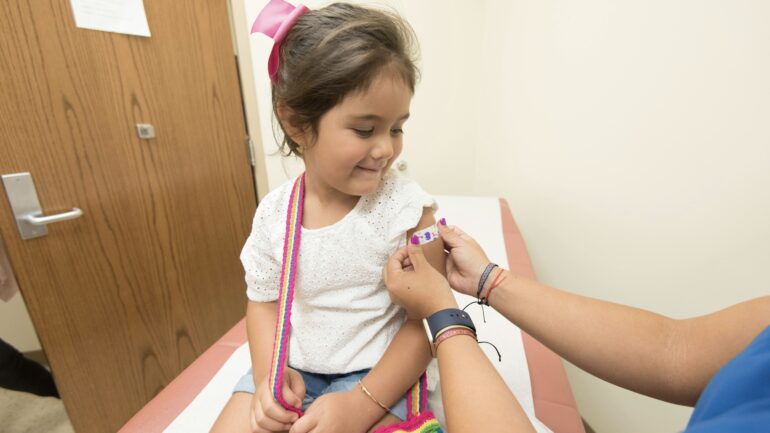Ontario is witnessing cases of measles with five confirmed cases, following Quebec with 12 cases so far, according to Public Health Ontario.
The Public Health Officer of York Region, Dr Barry Pakes, in an interview with Humber News has confirmed a case of measles in the region.
Pakes said the infected man is in his 30s and does not have a recent travel history.
“He was vaccinated. He had a fever, cough, a rash and white spots called Koplik spots around the mouth,” Pakes said.
He said the person was in contact with people at a high school. The people who had exposure to the infected person were given vaccinations within 72 hours.
“We had clinic over the weekend at the high school to catch people up and almost everyone there had exposure. Over 98 per cent of the people were able to give us their records that they were vaccinated,” Pakes said.
Public Health Ontario said measles cases have been reported in Toronto, York, Peel, Brant and Windsor.
Four cases have travel history while one case has an unknown source of exposure, the office of Public Health Ontario told Humber News.
“All measles cases in Ontario are thoroughly investigated to identify the likely source of infection,” PHO said.
A small girl getting vaccinated in her arm by a nurse. According to experts, children and people with compromised immunity are the most susceptible to the infection. All children above the age of one can be vaccinated. Photo credit: PexelsCDC
Dr Jesse Papenburg, an infectious diseases specialist at McGill University, called the spread “quite concerning”, particularly in Quebec.
“There is community transmission and until now we weren’t aware of this,” Papenburg said.
He said that there is a possibility that there are other cases that have not been detected. “The cases we’ve picked up might only be the tip of the iceberg.”
Some regions in Canada have suboptimal vaccination and are at high risk of severe outbreaks however because of nearly 95 per cent overall vaccination rates, there should not be forward transmission, Papenburg said.
The two doses of vaccination provide nearly complete protection against measles, he said.
“There’s been a politicization of vaccine opinions that has not been driven by science, which has been quite harmful.
“We have a decreased vaccine coverage of childhood vaccinations compared to before the pandemic such as measles, which is so important,” he said.
Pakes said that it’s rare for vaccinated people to get measles and even if they get the infection like the case in York region, it is very mild.
Dr Barry Pakes, York region's public health physician over a Team's video call for the interview. He said that active steps are being taken to mitigate risks associated to community spread. Photo credit: Anusha Siddiqui
“We are expecting it to get potentially worse because we know how many people are going to be travelling around March break time and that’s why we’re making sure people are getting vaccinated,” Pakes said.
Public Health Ontario said people who have not had measles or who have not been vaccinated are at greatest risk of infection.
“This includes infants who are under the age of one, too young to be vaccinated,” PHO said.
Pakes said people with compromised immune systems are also at a higher risk of contracting the infection, however, community spread is preventable if most people take the vaccine.
“If it’s 95 per cent vaccine coverage of the population, the cases will continue to be imported because people travel. But we’re not going to have it spread locally,” Pakes said.
Chief Public Health Officer of Canada Dr. Theresa Tam said in a statement that measles cases have continued to rise in 2024 because of a decline in measles vaccination especially among school-aged children after the COVID-19 pandemic.
“This could lead to an increase in imported measles cases, potentially resulting in transmission in communities in Canada,” she said.
“I strongly advise everyone in Canada to be vaccinated with two doses of a measles vaccine,” Tam said.

